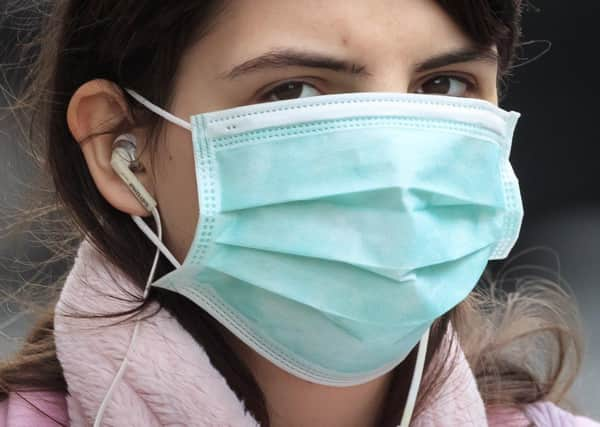Coronavirus: Magic Money Trees are sprouting up everywhere – John McLellan


Some £45bn went on taking RBS into public ownership through the purchase of shares, with 80 per cent of the company owned by the tax-payer, and while the bank has reformed and returned to profit, it is still 62 per cent government-owned.
When it gets to numbers like £850bn, the difference of a billion here or there seems not to matter so much, but considering Edinburgh Council’s annual budget is just under a billion it matters a lot. The UK government has so far pledged something like £400bn in emergency funding to deal with the coronavirus crisis but that’s only the start and the figure will rise, most immediately to meet promises to help the self-employed, but also as the costs begin to mount from providing emergency hospitals and suchlike and as the true economic cost begins to emerge.
Advertisement
Hide AdAdvertisement
Hide AdEven if it is over by autumn, the financial scale of this crisis could easily dwarf the banking crisis and it’s sobering to think that the bill for the last comparable national emergency, the Second World War, wasn’t settled until 2006 when the final repayment was made for the $4.3bn the UK borrowed from the USA 60 years before.
Of course the money doesn’t matter at the moment as long as people can stay healthy and feel secure in their own homes but the financial implications will need to be addressed at some point in the future.
Obviously no-one was at risk of death in the 2008 banking crash, but the government action was designed to prevent the kind of financial fear that is gripping us all now, like is there money available to pay the bills and the mortgage? Then the problem was access to money and now it’s the possible absence of any cash at all as work dries up.
It seems so long ago now, but in both the recent general elections it was a common accusation from left-wingers that the government was good at bailing out fat-cat bankers but not hard-pressed workers and the poor, and the response was that agreeing to every demand was simply unaffordable. It was an argument the public largely bought, given Labour’s manifestos based on higher public spending were rejected on both occasions.
Advertisement
Hide AdAdvertisement
Hide AdWe hear it locally too, with every council spending cut greeted by a comparison with the amount being spent on trams, on the basis that if the council can borrow for a pet project then it can borrow for other things too.
The coronavirus emergency has the potential to change all that, with the financial taps being fully turned on, not just here but in every country, and the only difference is the speed, extent and fine detail. The principle of generating the money and spending whatever it takes to beat the bug is challenged by no-one.
Not only has the Magic Money Tree been found, but forests of them are growing in every country. Without the need for hyperinflation, money itself could be devalued and unpicking high public spending after a splurge is a political quagmire, as successive Conservative governments have found out.
There has been much debate in recent years about the benefits or otherwise of a Citizens’ Income, in which the government pays every person a basic amount regardless of income, similar to the old uncapped child benefit system.
Advertisement
Hide AdAdvertisement
Hide AdThe problem was the difficulty of establishing an effective pilot scheme which would prove the case, but with the UK government now guaranteeing employees’ wages and set to cover self-employed earnings as well, we are actually about to experience a test of the Citizens’ Income theory on a previously impossible scale.
Who knows what the full implications of the crisis will be, but while the recovery phase is for another day after this killer is beaten, what was normal before is unlikely ever to return.
Comment Guidelines
National World encourages reader discussion on our stories. User feedback, insights and back-and-forth exchanges add a rich layer of context to reporting. Please review our Community Guidelines before commenting.